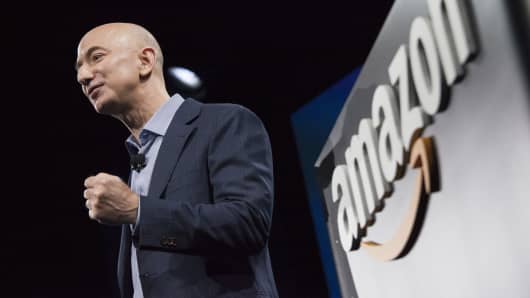The Amazon-Whole Foods deal is all about the large but treacherous grocery market opportunity!
 Most glowing opinion pieces on the acquisition of Whole Foods by Amazon (Forbes) don't hold water. There are much cheaper ways to get quick delivery (partnerships with stores, etc) than buying expensive Whole Foods locations. This is not a threat to Wal-mart as there is very little overlap between the customer bases of Whole Foods (high end) and Wal-mart (middle and lower income). However, grocery is a desirable retail category that Amazon has been trying to crack for a while. The market size is more than $600bn in the US alone (everyone needs food) and is fragmented (No grocer has more than 10% market-share other than Wal-mart, which itself controls only a fifth of grocery sales). Also, with its stock price at a low (with 2 years of declining sales), Whole Foods comes cheap (especially when bought with Amazon stock). At best, this is a relatively inexpensive "offline retail" experiment that will enable Amazon to scale its "technology in the physical environment" efforts, while gaining access to a running grocery business with great brand recall. Some downsides in this article titled 'The one glaring problem with the whole Amazon-Whole Foods deal'
Most glowing opinion pieces on the acquisition of Whole Foods by Amazon (Forbes) don't hold water. There are much cheaper ways to get quick delivery (partnerships with stores, etc) than buying expensive Whole Foods locations. This is not a threat to Wal-mart as there is very little overlap between the customer bases of Whole Foods (high end) and Wal-mart (middle and lower income). However, grocery is a desirable retail category that Amazon has been trying to crack for a while. The market size is more than $600bn in the US alone (everyone needs food) and is fragmented (No grocer has more than 10% market-share other than Wal-mart, which itself controls only a fifth of grocery sales). Also, with its stock price at a low (with 2 years of declining sales), Whole Foods comes cheap (especially when bought with Amazon stock). At best, this is a relatively inexpensive "offline retail" experiment that will enable Amazon to scale its "technology in the physical environment" efforts, while gaining access to a running grocery business with great brand recall. Some downsides in this article titled 'The one glaring problem with the whole Amazon-Whole Foods deal'